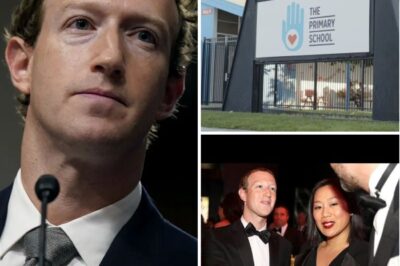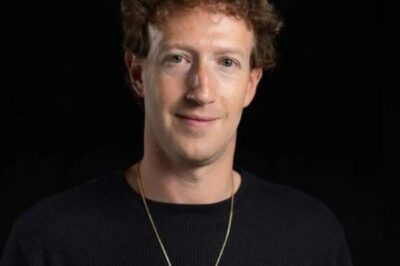Mark Zuckerberg is done playing defense. In a bold, controversial shift, the Meta CEO is rewriting the rules of the internet — starting with your kids. Behind his push for tighter safety controls lies a powerful question: Can we truly protect children without stealing their freedom?
This isn’t just another tech update. It’s a seismic change that’s turning heads, splitting opinions, and challenging the very nature of digital childhood.
From Playground to Panopticon?

Meta’s new initiative flips the script from reaction to prevention. Instead of blocking bad content after the fact, Zuckerberg is building a proactive AI system that watches everything before harm can happen.
Facial recognition. Algorithmic mood tracking. Speech pattern analysis.
The tools are futuristic — even fascinating — but also eerily Orwellian. Critics call it a padded cell wrapped in parental approval. Supporters? They see it as a digital guardian angel in an increasingly dark online world.
The “Safety Subscription” Nobody Asked For
At the heart of Zuckerberg’s vision is a troubling twist: safety now comes with a price tag.
Want real-time alerts when your teen gets a risky DM?
That’s premium.
Want a weekly behavior report?
Upgrade now.
What began as child protection is quickly becoming a profit engine. Investors love it. Parents are unsure. Privacy watchdogs are livid.
Surveillance or Safeguard?
Meta’s AI is powerful — able to flag “dangerous” behavior even before it happens. But what happens when the AI gets it wrong?
One teen’s mental health project was flagged and deleted. Another was locked out of their account over a misinterpreted message. These aren’t glitches — they’re warnings.
Is this safety? Or pre-crime?
Parents vs. Platforms: Who Raises the Digital Generation?

Zuckerberg insists: “We’re empowering parents.”
But many feel that tech is slowly replacing them.
As teens shift to underground platforms to escape overregulation, one truth becomes clear — overprotection may be pushing kids further into danger.
The Future: Data, Emotion, and Control

Coming next: eye tracking, emotion detection, and biometric feedback.
Zuckerberg wants to build not just a safer internet, but an internet that feels your feelings.
Where ads adapt to your heartbeat.
Where content adjusts based on your face.
It’s innovation on the edge of intrusion — and the world is watching.
Verdict?
Zuckerberg has flipped everything we know about kids online. But in doing so, he’s sparked the biggest question of all:
Are we protecting our children — or programming them?
News
Americans Recognize Călin Georgescu’s Potential: Is This the Road to Victory?
In an unexpected but powerful turn of events, Călin Georgescu — a name increasingly synonymous with Romanian hope and ambition…
Mark Zuckerberg’s Nonprofit Faces Furious Backlash Over Shocking School Shutdown—Is This the End of His Education Dream?
In a move that has ignited outrage across social media and local communities, Mark Zuckerberg’s nonprofit has made the controversial…
Mark Zuckerberg’s Necklace Holds a Hidden Secret—And It Could Change How We See the Tech Mogul
Mark Zuckerberg, the elusive mastermind behind Facebook, has long been a figure of intrigue in the tech world. For years,…
Elon Musk Once Warned of Tesla’s Fall—Now the $1 Trillion Giant Teeters, and His Own Words Echo Through Tesla’s Future. What if He Was Right All Along?
Tesla Faces Alarming Fall as Musk Ties Fate to America Tesla, one of the most well-known electric car companies ed…
JUST IN: Caitlin Clark’s SHOCKING Transformation – WNBA WATCH OUT!
Get ready for a seismic shift in the WNBA! Caitlin Clark, the breakout star of the Indiana Fever, has…
Breaking News: Karoline Leavitt and Caitlin Clark SHOCK Crowd at American Honor Gala — Their Defiant Response Leaves Critics Speechless!
At the recent American Honor Gala, Karoline Leavitt and Caitlin Clark found themselves at the heart of a fiery debate…
End of content
No more pages to load












